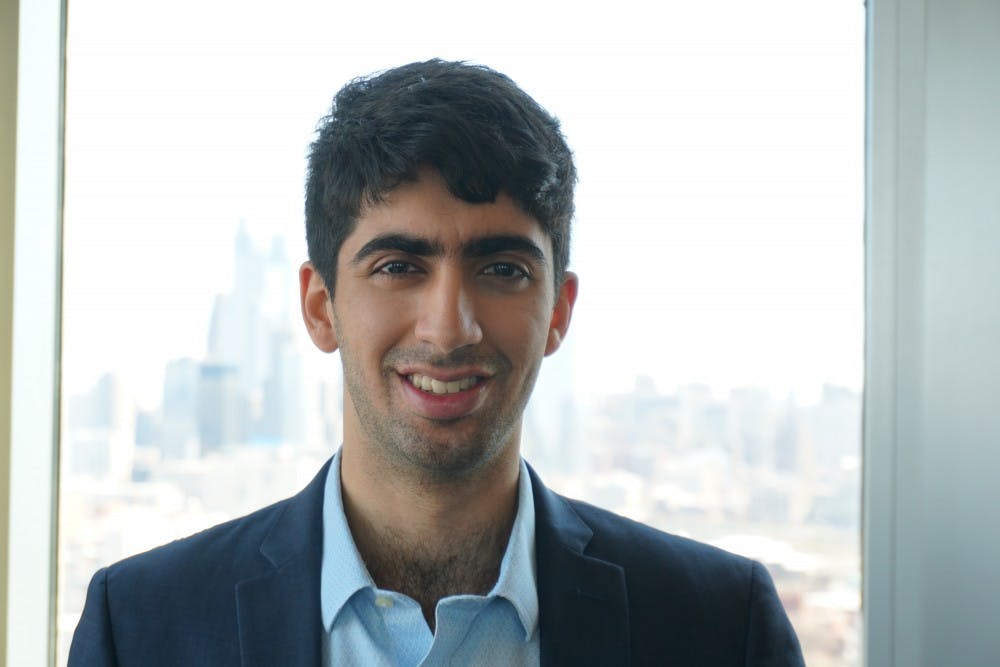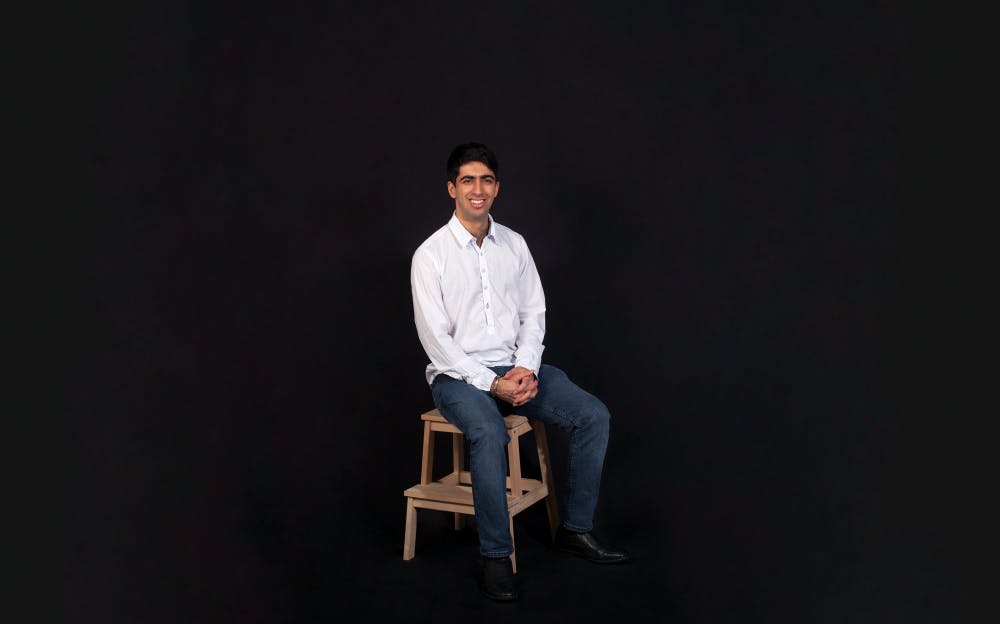I spot Arjun Malik (C ‘18) from across the room: tall, lanky, looking for someone in the clamor of Saxby’s. With all the noise, how could this be anyone’s preferred place to do anything? “It’s close to my place,” he admits, citing laziness for his choice in meeting place.
He orders a chamomile tea, and as soon as he sits down he predictably compliments my “#FreeMeekMill” laptop sticker. Arjun is one of the founders of the Philadelphia Bail Fund, a project that provides bails for low–income individuals who cannot afford it themselves. His motivation for the project stems both from his summer interning at the Public Defender’s office and his time at the death penalty clinic in Louisiana. “The entire US has issues with the criminal justice system,” he says. “There are a lot of times when I feel discouraged and overwhelmed by how bad the situation is for other people. My biggest passion right now is bridging that gap.”
In Philadelphia, two people who are accused of the same crime may face vastly different treatment depending on whether or not they can afford bail money. The Philadelphia Bail Fund exists as a way of closing the chasm between wealth and a fair trial. “I was moved to start a bail fund in Philadelphia after seeing what a huge impact the bail system had on people’s lives during my summer internship at the Brooklyn Defender’s Office,” Arjun says. “I was outraged that people were being held in jail just because they could not afford to pay bail.”
The period after arrest and before trial is called pretrial detention, a period in which anyone who is convinced of a crime is still presumed innocent. A person’s ability to post bail, however, is what will determine whether or not he spends time in jail, a discrepancy that inspired Arjun to start the fund. “Poverty should not determine freedom,” he says. “The bail fund is important because it’s able to directly secure freedom for people who are locked up in jail solely because they cannot afford a sum of money.” So far, the fund has raised over $70,000, and in addition to providing bail money for indigent citizens, the project also advocates for long–term reform of the criminal justice system.
While his work is focused on the US, it contrasts his childhood across the globe. Although he grew up in Connecticut, he’s lived in a variety of places, from London to Singapore to Hong Kong. There’s a refreshing sense of humility about him, and despite his international upbringing, he admits that he’s barely proficient in one language, let alone many. “My sophomore summer of high school, I spent about two months in the state of Bihar,” he says. “The most embarrassing thing was trying to speak Hindi with everyone. The farmers there loved hearing me talk so they could laugh about it,” he recalls, smiling.
Through our conversation, he intersperses personal anecdotes with his community service efforts, He tells me about his middle school years, a period of time where he was “super into” golf and would go and compete in different parts of Asia. In fact, it was only after quitting golf in high school that he was able to allocate his time to other activities like debate and service clubs, organizations that probably later influenced his dedication towards public service.

When he got to Penn, he majored in Political Science and Economics, and despite the importance of the work he’s done, he spends an equal amount of time talking about the important relationships he’s garnered through the years. He credits two professors as his inspirations and motivators: Professor Rogers Smith and Professor Marie Gottschalk.“Professor Smith’s class sophomore year really changed my idea of what I wanted to do in life,” he says. “ And Professor Marie Gottschalk really challenged me and pushed me to understand politics further.” Outside the classroom he spends time with his girlfriend and his friends, many of whom are from his freshman hall and others are the brothers he’s made at Sig Nu. “I originally just rushed for the free food,” he admits. “Then I started to meet people that I actually liked and we hit it off.”
Sentences like these are indicative of Arjun’s easygoing nature, something that you can sense right away when meeting him. Despite his many accomplishments, he finds himself gravitating towards the simple pleasures. “I wish people knew that at heart I’m an incredibly lazy person,” he says. “I don’t need to be doing something all the time.” In his free time, he enjoys watching Netflix, “lazing around,” and exploring his foodie side. In fact, the most difficult question Arjun answered was what single dish he would choose to eat every day for a month. After some protest, he finally replied, “Japanese food,” but he wasn’t happy about being sequestered to just one choice.
After graduation, Arjun will face a lot of choices about what he wants to do and where he wants to go. But for right now, he shares the same anxieties and nostalgia as his classmates. Of course he’ll miss his friends and all the people he’ll be leaving behind. But he’ll also miss many of the mundane parts of Penn, the things people don’t often think about.
“I’m gonna miss Septa,” he says. “That’s something I would tell all freshman: stop using Uber and take the Septa. It has a lot of character. It’s a pretty run down sort of system, but in a charismatic way.” But then he pauses, “Oh, and I’m gonna miss the food trucks.”
Read about the rest of the students profiled for 34th Street Magazine's Penn 10 project here.

